Although they aren’t suitable for everyone, self-managed super funds (SMSF) can help diversify a retirement account in ways that industrial or retail superannuation funds can’t.
As a result, purchasing digital assets like Bitcoin and other cryptocurrencies to keep in an SMSF is possible.
This guide explains in detail how to add Bitcoin and other digital currencies to a self-managed super fund and additional vital information to keep in mind. Click here to learn more about SMSFs in detail.
How to prepare yourself?
The exact requirements apply to your bitcoin SMSF holdings as to “regular” SMSF investments. However, as cryptocurrencies are wholly digital assets, they must adhere to these requirements significantly differently.
First of all, as you know, cryptocurrencies are more complex and volatile than other asset classes.
The first step is to ensure that your fund’s credit agreement and documented investment strategy can consider these risks.
Additionally, it would help if you verified that any cryptocurrency holdings in the SMSF will comply with the legal standards for investment limitations.
How to distinguish personal assets from cryptocurrencies held by SMSF?
A private key, which refers to the complex and lengthy password needed to unlock a bitcoin wallet, is basically what it means to have custody of a coin.
The public key or bank address is a unique code to identify the wallet.
You would need keys and wallets, particularly for the SMSF cryptocurrencies, because investments in SMSFs must be maintained apart from personal funds. The SMSF fund must demonstrate that it is the rightful owner of the pertinent keys and has an account distinct from any individual crypto wallets used by administrators and members.
If the administrator is keeping the secret keys on their property:
The purchase or sale of bitcoin assets should be documented such that the trustee, rather than a specific individual, is acknowledged as the proprietor of the relevant cryptocurrency.
In this case, the trustee will require a cryptocurrency wallet to manage the keys.
The public key or wallet location can be used to identify the coin itself. The trustee must keep the private key a secret from anybody.
If using a third party:
The crypto exchange registers an SMSF account on behalf of the trustee by receiving information such as the established trust address and phone number, photocopy of the trust deed, and trust recipient details.
The trustee can gain access to their bitcoin holdings via this fairly traditional manner (such as with email and password).
This has the benefit of making buying, trading, and record-keeping faster and easier while relieving the trustee of having to worry about managing private keys, as opposed to the trustee taking actual possession of the private keys.
Methods for evaluating cryptocurrencies
You will need to evaluate your SMSFs crypto assets for tax and other reasons, just like any other asset.
The problem is that crypto is highly erratic and subject to price variations on various exchanges.
The ATO advises that when evaluating cryptocurrencies, you should use their current market value, expressed in Australian dollars, as reported by a “reputable” crypto exchange.
Things to remember before integrating cryptocurrencies into an SMSF
- It is unexpected and volatile to use cryptocurrency. As a result, rather than persons nearing retirement, it would be more suited to younger individuals with a greater tolerance for economic risk.
- Risks associated with different types of cryptocurrency custody vary. Although storing funds on exchanges is generally seen as being less secure than taking physical control, the administrator needs to be well-prepared if they will be managing private keys.
Conclusion
Before depending on this information, consider your circumstances and seek counsel. Before making any final decisions, you should also confirm the specifics of any product or service and examine the websites of the appropriate regulators.


Comments are closed.